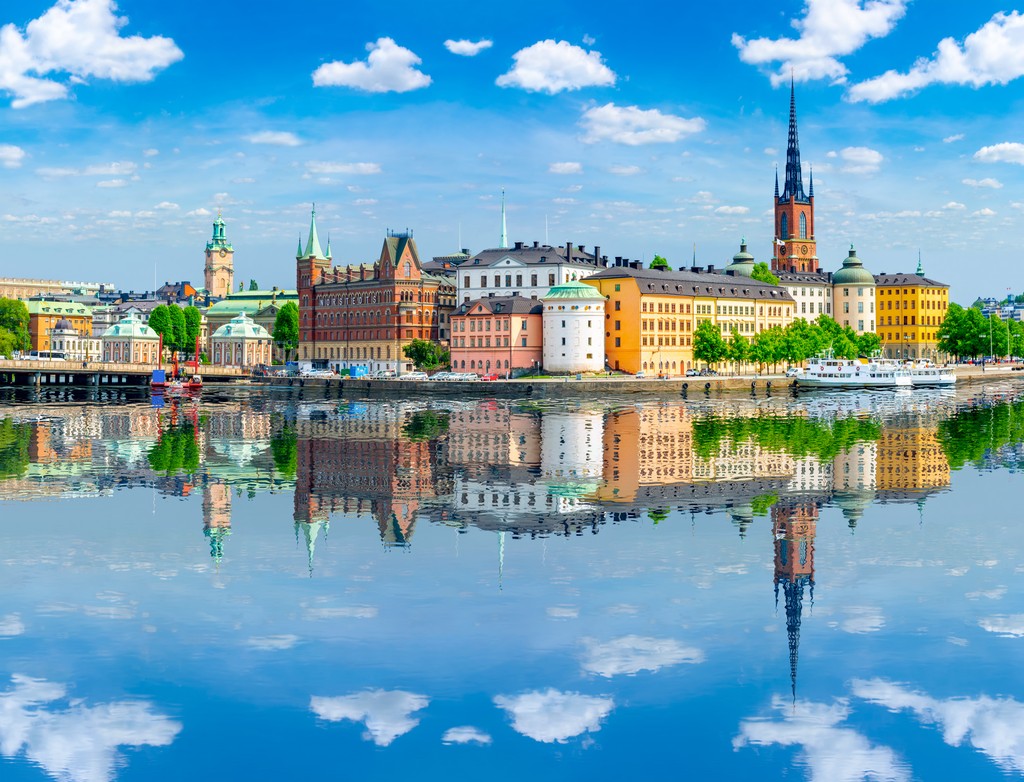Overview of Sweden
Sweden, officially known as the Kingdom of Sweden, is a Nordic country located in Northern Europe.
Geography: Sweden shares borders with Norway to the west and Finland to the northeast. It is connected to Denmark by a bridge-tunnel across the Öresund Strait. The country is known for its stunning natural landscapes, including forests, lakes, rivers, and an extensive coastline along the Baltic Sea and the Gulf of Bothnia. Sweden also has several large islands, such as Gotland and Öland.
Capital and Major Cities: The capital city of Sweden is Stockholm, situated on the eastern coast of the country. Other major cities include Gothenburg, Sweden’s second-largest city, Malmö, Uppsala, and Linköping.
Population and Languages: Sweden has a population of approximately 10.4 million people. The official language is Swedish, and it is spoken by the majority of the population. English is widely understood and spoken, particularly among younger generations.
Government and Economy: Sweden is a parliamentary constitutional monarchy with a representative democracy. The country has a well-developed welfare system and a high standard of living. It is known for its strong emphasis on social equality, environmental sustainability, and innovation. The Swedish economy is diverse, with key sectors including manufacturing, services, information technology, and renewable energy.
Culture and Heritage: Swedish culture is characterized by a blend of modernity and tradition. The country has a rich cultural heritage, with influences from Viking history, Sami indigenous culture, and Nordic folklore. Sweden is known for its design, music, literature, and film industries. Swedish cuisine features traditional dishes like meatballs, herring, and crispbread, along with a growing focus on organic and locally sourced ingredients.
Education and Healthcare: Sweden has a well-regarded education system, offering free education to both Swedish and international students. The country has a high literacy rate and is home to several renowned universities. Sweden also has a comprehensive healthcare system that provides universal coverage and high-quality medical care.
Transportation: Sweden has a well-developed transportation infrastructure, including an extensive network of roads, railways, and airports. Public transportation, particularly trains and buses, is efficient and widely used. The country also has an extensive network of cycling paths and is known for its commitment to sustainable transportation.
Tourism and Landmarks: Sweden attracts visitors with its beautiful landscapes, cultural attractions, and outdoor activities. Some popular tourist destinations include Stockholm’s Gamla Stan (Old Town), the Vasa Museum, the Icehotel in Jukkasjärvi, the picturesque archipelagos of Stockholm and Gothenburg, and the stunning natural scenery of places like the Abisko National Park and the Swedish Lapland.
Sweden offers a high quality of life, a strong commitment to sustainability, and a wealth of cultural and natural attractions. Its blend of modernity, natural beauty, and rich history make it a fascinating country to explore and experience.

Comment (0)